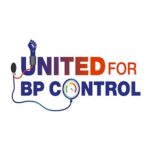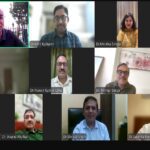“Precaution and prevention must happen from an early age to avoid complications later”
Healthy Soch
New Delhi, March 06, 2019:
A recent study, published in the Journal of the American Society of Hypertension, has indicated that older Indians living in cities are more likely to suffer from hypertension when compared to their rural counterparts. It indicates that the underlying causes in this ‘independent’ urban effect on hypertension may be due to some other city-specific stress such as social insecurity and environmental pollutants including noise.
Approximately 44% of the older Indians living in the cities suffered from hypertension, whereas its prevalence was 35% among their rural counterparts. Increasing age is one of the major risk factors for developing hypertension.
Speaking about this, Padma Shri Awardee, Dr KK Aggarwal, President, HCFI, said, “Old age and obesity are two major risk factors for hypertension. People with resistant hypertension have a high cardiovascular risk. The Indian diet is high in sodium and our salt consumption is one of the biggest contributing factors for non-communicable diseases. Excessive salt over time can cause irreparable damage to the kidneys as well. High salt intake also causes a rise in blood pressure, a condition known as hypertension. High blood pressure can harden the arteries, further decreasing the flow of blood and oxygen. An impairment in the flow of oxygen, to an organ such as your face, can cause your skin to dry and wrinkles faster which can make one look less youthful- not to mention the other health effects.”
Hypertension generally doesn’t cause any outward signs or symptoms. Yet it silently damages blood vessels, the heart, kidneys, and other organs. It isn’t a disease. It is a sign that something is wrong in the body.
Adding further, Dr Aggarwal, who is also the Group Editor-in-Chief of IJCP, said, “High blood pressure imposes an up-front burden in people who know they have it and who are working to control it. It adds to worries about health. It alters what you eat and how active you are, since a low-sodium diet and exercise are important ways to help keep blood pressure in check. Some people need medication and may need to take one or more pills a day, which can be a costly hassle.”
Some tips from HCFI
- Reduce salt intake as much as possible, lower the better. Add only normal amounts of salt when cooking or use alternatives to salt.
- Preserved and packaged foods have maximum salt; reduce them as much as possible
- Read the labels when shopping. Look for lower sodium in cereals, crackers, pasta sauces, canned vegetables, or any foods with low-salt options. Or, eat less processed and packaged foods.
- Ask about salt added to food, especially at restaurants. Most restaurant chefs will omit salt when requested.
- Remember the word ‘Na’, which is present in many drugs, soda etc.
- Nothing can be preserved without adding salt to it, therefore beware of processed and frozen fruits.
- Remember that it takes three months of a salt-free diet to get adjusted to it and ultimately start liking it.
healthysoch







